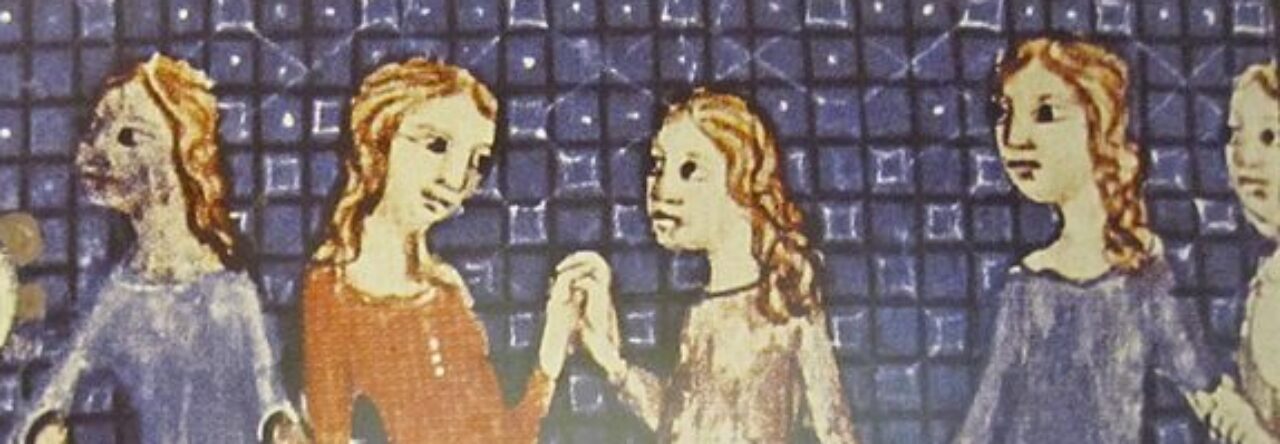In Shakespeare’s play As You Like It, the character Jaques discusses the “Seven Ages of Man” in a soliloquy during Act II. Shakespeare wrote this play in the late 16th century, after the medieval period had ended, but the concepts of human life being divided into ages extends back to ancient Greece and Rome. Medieval philosophers discussed the idea that men had seven stages of life (infancy, childhood, adolescence, youth, adulthood, old age, and feebleness) but women were perceived as only having three stages: maid (unmarried), wife, and widow.
In today’s class, we’re going to explore the various stages of life that women experienced and challenge the long-held concept that all women were either married or to be married. Instead, we’ll look at women’s experiences with singlehood, different forms of marital and non-marital relationships, and highlight how women’s lifetimes were considerably more complex than the perceived three stages.
To Listen and Watch (all students)
Today is the first episode of our podcast series! There are 4 assigned over the semester. For in person students, please make sure to listen to this episode BEFORE coming to class. For online students, make sure you listen to it before engaging in discussion on the chatboard.
In this episode, I interview Dr. Michelle Armstrong-Partida and Dr. Susan McDonough about their work on women in the medieval Mediterranean.
I will post the resources mentioned in the podcast on Thursday!
Podcast available here:
Here is the short video on Women and the law:
To Read
This looks like a lot of readings but many of these are quite short.
“Domestic Violence”
“Manumission of a Female Slave”
“Sale of Female Slaves”
“Anglo-Jewish Betrothal Contract”
“Single Women’s Business Transactions”
“Customs on the Dowry”
“Dowry Payments”
All available:
To Do
In person students
For those signed up to lead discussion for this class, you are in charge of developing discussion questions based on the assigned readings. You can also create activities for the class to engage in as a means of exploring this material.
Online students
Questions will be posted in your chatboard channels as a means of starting discussion about the assigned readings AND the podcast episode. Students who are signed up to lead the online discussion are responsible for monitoring your classmates’ comments and responding to them to keep the discussion going. If there are questions that arise which I can help with, don’t forget to tag me @dwl
Comments should be posted by Sunday May 15th at midnight.
